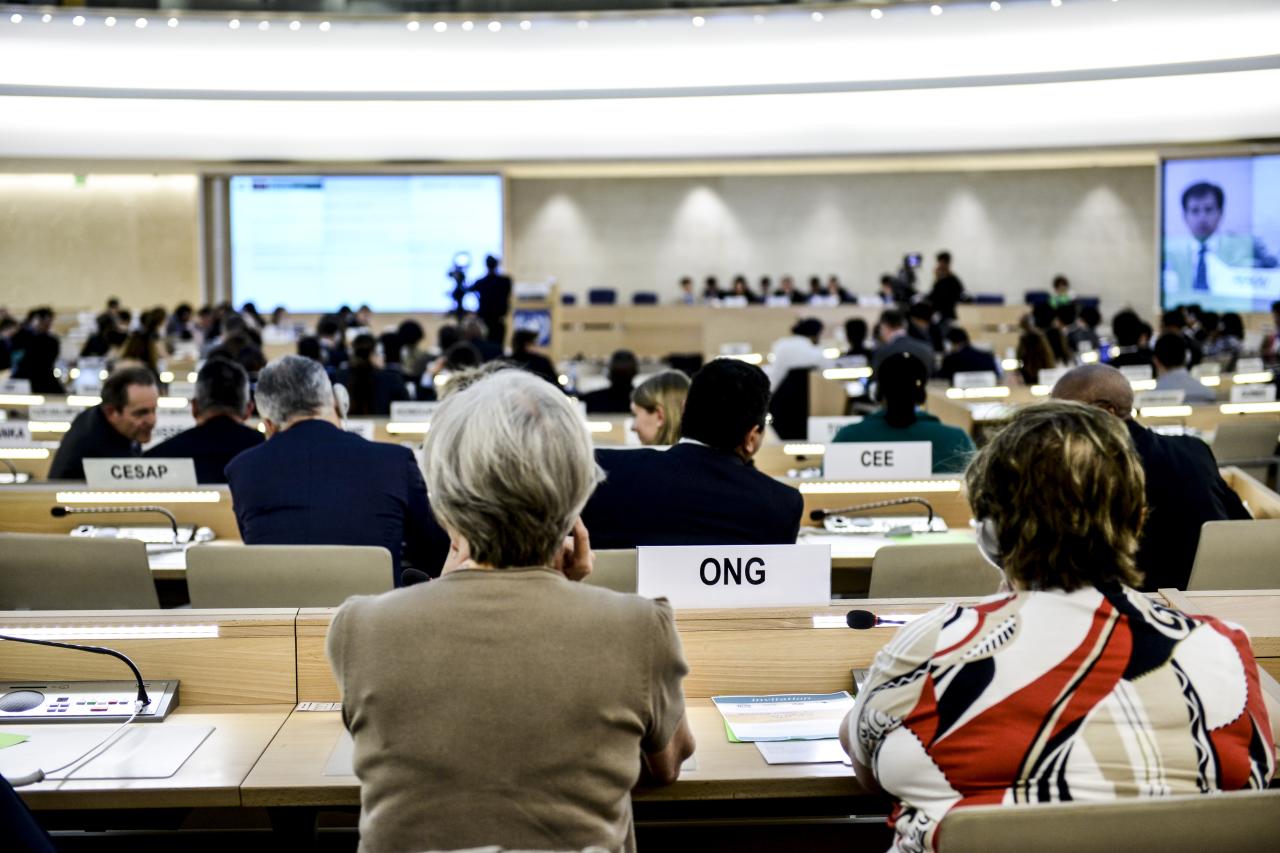The report, “Strengthening the UN Human Rights Council from the Ground Up,” outlines the discussions and key recommendations during a dialogue convened by the organisations in February. The dialogue brought together a broad range of human rights defenders from various regions working at the national, regional, and international levels with representatives of national human rights institutions, and the Office of the High Commissioner for Human Rights. The focus was on making concrete and implementable recommendations that do not require institutional reform.
Tawanda Mutasah, Senior Director of International Law and Policy at Amnesty International, said: “To be credible, any discussion of Council strengthening should focus primarily on enhancing its contribution to the promotion and protection of human rights – its impact on the ground. As the Council’s Bureau launches discussions this year on enhancing the efficiency of the Council, we reiterate that measures to strengthen the Council’s efficiency should not, and cannot, be separated from efforts to enhance its effectiveness.”
Salma El Hosseiny, ISHR’s Human Rights Council Advocate, added: “It is therefore imperative that discussions on strengthening the Council – and making it more efficient – be informed by the experience and expertise of national and regional level actors, including rights-holders, human rights defenders and other civil society actors, victims, survivors (and their representatives), national human rights institutions and UN country teams.”
Many participants at the February dialogue affirmed the value and relevance of the Council in responding to human rights crises and in encouraging a broad range of human rights reforms and commitments by individual countries. At the same time, they shared concerns about issues that limit the Council’s ability to effectively deliver on its mandate.
“The Human Rights Council plays a vital role in addressing many human rights concerns, but its impact is limited and credibility eroded when it fails to address grave human rights violations for primarily political reasons,” said John Fisher, Geneva director at Human Rights Watch. “Individual countries should strengthen the Council’s ability to promote and protect human rights on the ground, particularly through prevention, implementation and accountability.”
Maryam Al Khawaja, Special Advisor on Advocacy at the Gulf Center for Human Rights and ISHR board member, said: “The selectivity and politicisation of the Council’s response to country situations allow some governments to escape scrutiny for serious human rights violations.”
Hassan Shire, Executive Director of DefendDefenders, said: “Having States that commit gross and systematic human rights violations sitting on the Council negatively impacts its credibility in the eyes of people around the world.”
Gustavo Huppes, Officer for Democratic Space at Conectas said: “To have impact on the ground, follow-up and implementation are key, though often neglected priorities of the Council”.
Yashasvi Nain, Program Officer at the Commonwealth Human Rights Initiative, said: “An effective Council is one that is accessible and visible to a broad range of actors, including victims, rights-holders, civil society, and human rights defenders.”
Read the full report here.
Update: On 24 May 2018, ISHR, Human Rights Watch and Amnesty International convened a panel in New York City on the topic of strengthening the Human Rights Council, along with Venezuelan defender Ligia Bolivar, OHCHR representative Craig Mokhiber, and Cynthia Soohoo, a CUNY Law School professor and member of the U.S. Human Rights Network.
After discussing the report, the panel turned to specific opportunities to enhance the Council’s work, zeroing in on improvements that could be made without broad structural reforms. Several panelists brought up the issue of Council membership and its effect on the body’s credibility, with Ms Bolivar stressing the importance of having competitive elections and screening candidates on their human rights records.
Panelists also discussed implementation and how the work of the Human Rights Council could be made more relevant to activists and defenders. Mr Mokhiber urged a renewed focus on protection and an annual Council report on the state of human rights globally. Louis Charbonneau from Human Rights Watch suggested a mandate for UN country teams to report to the Council, which would require resident coordinators and country teams to be aware of the human rights developments in their countries of work.




